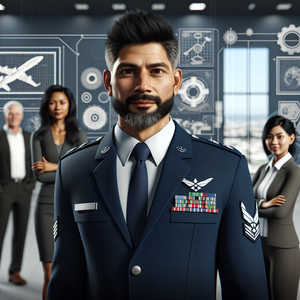
15 In-Demand Military Jobs That Facilitate a Smooth Transition to Civilian Careers
Transitioning from military to civilian life is a journey filled with both opportunities and challenges. Many veterans face the daunting task of translating their military skills into civilian job prospects, a process that can often feel overwhelming. However, there are numerous military occupations that provide a solid foundation for entering the civilian workforce. This article highlights 15 high-demand military jobs that not only allow veterans to leverage their unique skill sets but also offer promising career paths in the civilian job market.
Job Summaries:
Operating Room Specialist:
- Military Operating Room Specialists are adept at surgical procedures and patient care.
- They make the transition to civilian roles as surgical technicians seamless.
- These professionals prepare operating rooms and assist in surgeries.
- A high school diploma and certification are typically required.
- Their comprehensive training in maintaining sterile environments equips them with skills that are highly valued in healthcare.
Dental Specialist:
- Veterans who served as Dental Specialists can easily transition to civilian roles as dental hygienists or assistants.
- These positions usually require certification and an associate degree, focusing on patient care and oral hygiene education.
- The hands-on experience gained in the military provides a significant advantage in civilian dental practices.
Technical Engineer:
- Military Technical Engineers bring strong problem-solving and project management skills to the civilian sector.
- They can pursue careers across various engineering fields, often requiring a bachelor’s degree and relevant certifications.
- Their background in managing complex projects positions them well for success in industries ranging from construction to technology.
Motor Transport Operator:
- Trained in vehicle operation and maintenance.
- Motor Transport Operators can transition to roles such as truck drivers or logistics coordinators.
- A commercial driver's license (CDL) is typically needed, along with additional certifications that enhance job prospects.
- Their military experience fosters strong problem-solving skills, making them assets in the transportation industry.
Intelligence Analyst:
- Military Intelligence Analysts can pivot to civilian roles such as data analysts or cybersecurity professionals.
- These positions often require analytical thinking and proficiency in software tools.
- Degrees in fields like political science or computer science being advantageous.
- Their ability to quickly synthesize information is invaluable in both public and private sectors.
Wheeled Vehicle Mechanic:
- Wheeled Vehicle Mechanics are well-prepared to become automotive service technicians or diesel mechanics in civilian life.
- A high school diploma and vocational training are typically required.
- Their practical skills with advanced machinery give them a competitive edge in the automotive industry.
Cyber Operations Specialist:
- Cyber Operations Specialists trained in protecting military networks can seamlessly transition to civilian roles such as cybersecurity analysts or information security managers.
- Knowledge of network security protocols and certifications like CompTIA Security+ are often required.
- They are positioned as sought-after professionals across various industries.
HVAC Technician:
- Military personnel experienced in HVAC systems can transition into civilian roles as HVAC technicians.
- HVAC technicians install, maintain, and repair HVAC systems.
- A high school diploma and relevant certifications are typically required.
- On-the-job training is often necessary.
- Technical skills gained in the military are an asset in the HVAC industry.
Law Enforcement Officer:
- Veterans with military policing or security experience can transition to civilian law enforcement roles, such as police officers or security professionals.
- Requirements often include completing a police academy training program and passing physical fitness tests.
- Their military training instills discipline and leadership skills crucial for maintaining public safety.
Network Engineer:
- Military Network Engineers can leverage their skills in civilian life as network administrators or IT specialists.
- These roles typically require a bachelor’s degree in computer science or related fields.
- Certifications like Cisco Certified Network Associate (CCNA) enhance job prospects.
- Their technical expertise and problem-solving abilities are invaluable in the tech industry.
Veterinary Technician:
- Veterinary Technicians with military training in animal care can transition to civilian roles in veterinary clinics or animal hospitals.
- A veterinary technology degree and state certification are typically required.
- Their hands-on experience with animals forms a strong foundation for this compassionate career path.
Emergency Medical Technician (EMT):
- Military personnel trained in emergency medical care can transition to civilian roles as EMTs or paramedics.
- Certification from accredited programs is required.
- Their experience in high-pressure situations makes them invaluable in healthcare settings.
Construction Manager:
- Veterans with experience in military project management can transition to civilian roles as construction managers.
- Construction managers oversee projects from planning to completion.
- A degree in construction management or related fields is often required.
- Strong leadership skills honed during military service are important.
Logistics Coordinator:
- Military Logistics Coordinators adept at managing the movement of supplies and equipment can transition to civilian roles in supply chain management or logistics operations.
- Strong organizational and communication skills are essential.
- A degree in business or logistics enhances job prospects.
Human Resources Specialist:
- Military Human Resources Specialists can transition to civilian HR roles.
- They manage employee relations, recruitment, and training.
- Typically requiring a degree in human resources or business along with relevant certifications.
- Their experience in personnel management and understanding of military culture are significant assets in civilian workplaces.
These job summaries highlight the diverse range of military careers that translate effectively into civilian life, aligning with high-demand industries and providing clear pathways for veterans. By understanding the necessary steps and opportunities available, veterans can navigate their transition and achieve success in the civilian workforce. As many have done before them, they can embrace new challenges and continue to contribute meaningfully to society.
Explore More Jobs

